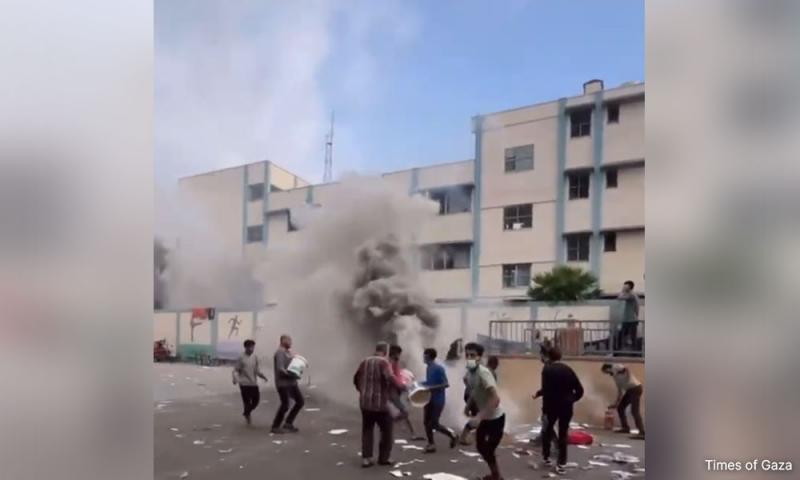
Three UN schools sheltering 20k in Gaza bombed, says UN agency
United Nations schools where some 20,000 displaced people in the north of Gaza were sheltering were bombed by Israeli forces on Thursday, killing at least 20 people, United Nations Relief and Works Agency for Palestine Refugees (UNRWA) said.
"These are official UNRWA schools where we shelter a number of displaced persons in the north of Gaza.
"These shelters are clearly notified, the locations are well-known, and we have thousands of people at the time taking shelter.
"The first report coming out of Jabalia (refugee camp, where one UN school is located) indicates that more than 20 people have been killed," UNRWA head Philippe Lazzarini told CNN.
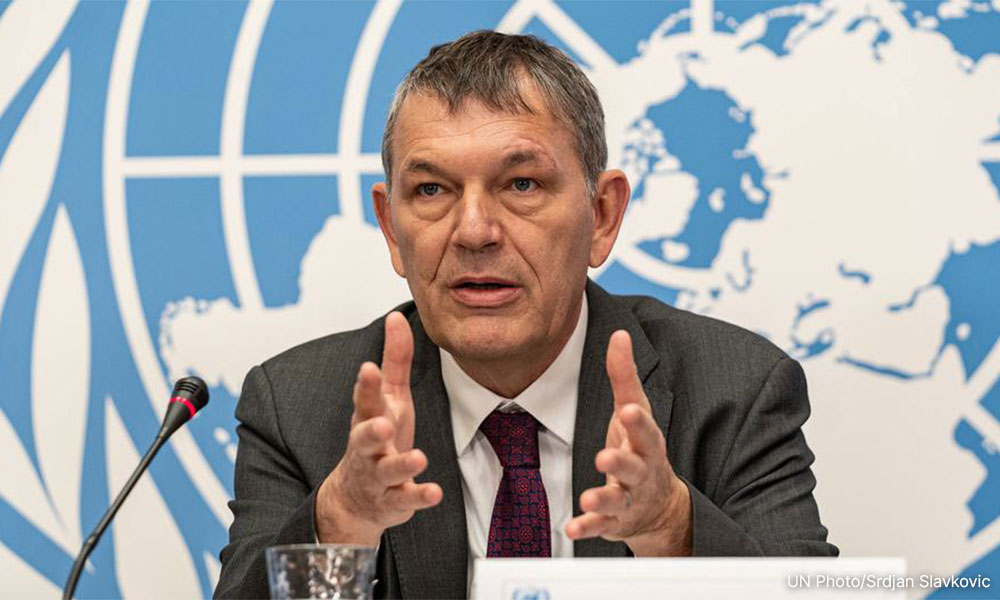
Philippe Lazzarini
He added that the destruction and number of people killed in Gaza are so staggering that it "cannot be collateral anymore".
He added that the destruction and number of people killed in Gaza are so staggering that it "cannot be collateral anymore".
“Over the last few hours, I received reports that three of our schools sheltering about 20,000 people have been hit.” @UNRWA head Philippe Lazzarini just visited Gaza, the first senior UN official to do so. He joined me to discuss the ongoing humanitarian crisis.
White phosphorus
Palestinian news broadcaster Al Aqsa reported that white phosphorus was dropped onto the compounds of these schools, matching videos uploaded on social media said to be captured from the site.
This comes as healthcare workers operating in Gaza told Sky News that based on their assessment of the injuries of those hurt in Israeli attacks, white phosphorus is being used.
According to the World Health Organization, white phosphorus, often used by militaries to illuminate battlefields and create smokescreens, "can cause deep and severe burns, penetrating even through the bone, and has been known to reignite after initial treatment".
The Human Rights Watch said it has an incendiary effect, and can indiscriminately set people, structures, and surrounding (areas) alight. Incendiary weapons are restricted under a UN treaty.
Israeli Defence Force (IDF) spokesperson Peter Lerner, however, said he is not aware of the substance being used in IDF weapons in Gaza.
Palestinian news broadcaster Al Aqsa reported that white phosphorus was dropped onto the compounds of these schools, matching videos uploaded on social media said to be captured from the site.
This comes as healthcare workers operating in Gaza told Sky News that based on their assessment of the injuries of those hurt in Israeli attacks, white phosphorus is being used.
According to the World Health Organization, white phosphorus, often used by militaries to illuminate battlefields and create smokescreens, "can cause deep and severe burns, penetrating even through the bone, and has been known to reignite after initial treatment".
The Human Rights Watch said it has an incendiary effect, and can indiscriminately set people, structures, and surrounding (areas) alight. Incendiary weapons are restricted under a UN treaty.
Israeli Defence Force (IDF) spokesperson Peter Lerner, however, said he is not aware of the substance being used in IDF weapons in Gaza.

"The IDF operates within the realm of the rules of armed conflict. The tools we use are within the laws of humanitarian law.
"The laws of armed conflict do not prohibit the use of the phosphorus being used.
"I don't know of any instances where it has been used but it can be used," he told Sky News.
Human Rights Watch and Amnesty International said their analysis of the fighting confirms that the IDF used white phosphorus in Gaza and Lebanon, but the IDF denied this.
"The laws of armed conflict do not prohibit the use of the phosphorus being used.
"I don't know of any instances where it has been used but it can be used," he told Sky News.
Human Rights Watch and Amnesty International said their analysis of the fighting confirms that the IDF used white phosphorus in Gaza and Lebanon, but the IDF denied this.
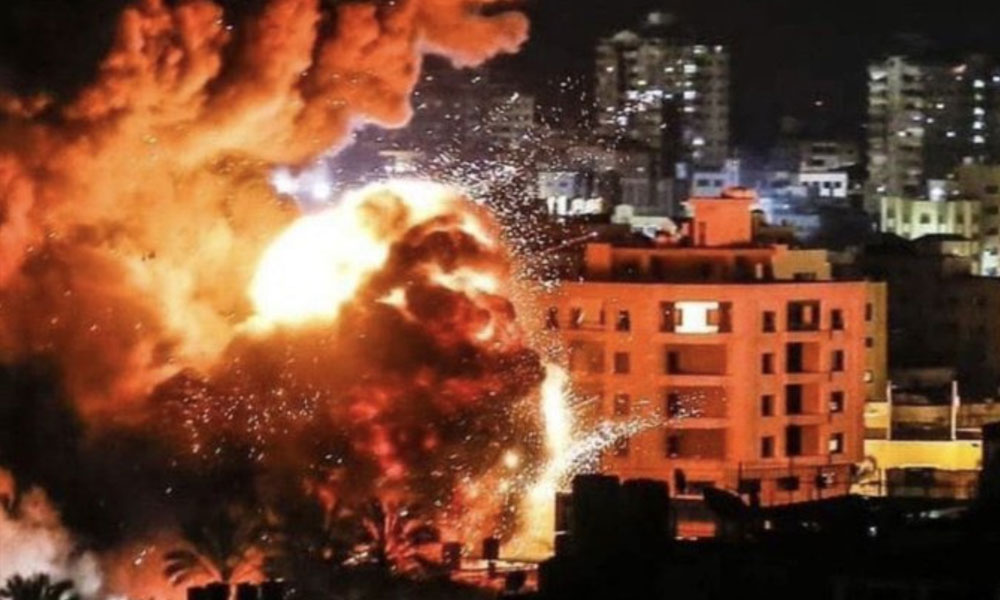
The Gaza Health Ministry said more than 9,000 Palestinians have been killed while Israel said more than 1,400 of its citizens have been killed since violence broke out on Oct 7.
They are mostly civilians and include children.
More than 200 Israelis have been taken hostage by Hamas on Oct 7.
Meanwhile, the IDF told CNN that families killed in Israeli bombings in the Jabalia refugee camp should not have been there and should have evacuated.
Responding to a Reuters video clip showing a man listing the names of 15 family members killed in the shelling, IDF spokesperson Jonathan Conricus said: "What I can say to that man, without even a drop of cynicism, you should have evacuated, you and your family, you should not have been there."
He also said the residents of Jabalia refugee camp are aware of Hamas' alleged operations there and should have known there would be heavy fighting there.
When asked by CNN if it was reasonable to ask thousands of refugees and poor people to leave at short notice, Conricus said Jabalia is not a makeshift refugee camp but permanent dwellings of Palestinians.
"These aren't refugees any more than my grandparents are refugees coming from Poland and Morocco in 1948," he said.
The Jabalia refugee camp is the largest refugee camp in Gaza and is home to Palestinians who were displaced in the numerous wars with Israel since 1948.
The IDF said it was targeting Hamas leader, Ibrahim Biari, who was hiding there, and that he was killed in the attack. Hamas denies this.
Social order breaking down
The Gaza Strip has been under blockade by Egypt and Israel since 2005 when Hamas took over, severely limiting trade and supplies by civilians.
UNRWA's Lazzarinni said before Oct 7, the international aid community led by UNRWA was providing half of the calorie needs of some 1.2 million people living in Gaza.
This was provided through some 500 aid trucks which entered Gaza daily via the Rafah crossing for Egypt, but less than 300 trucks bearing aid have been allowed into Gaza since Oct 7, he said.
He said the desperate conditions have forced the social order to break down, with the UNRWA staff finding it difficult to even transport bread from a bakery to their shelters, because there are hundreds of hungry people in front of those bakeries seeking food.
He added its services will also have to shut down within a few days if fuel continues to be blocked from entering Gaza.
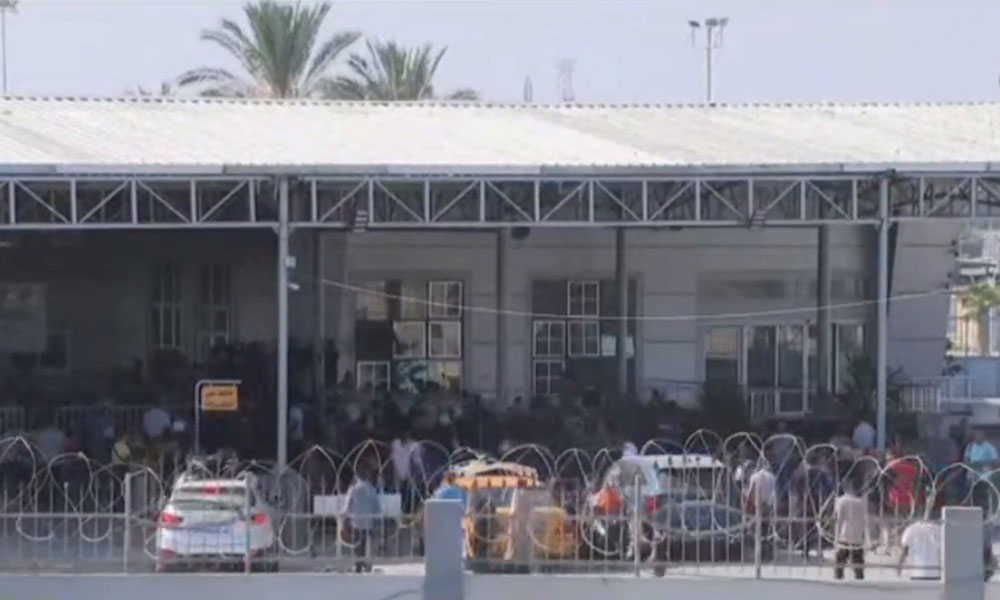
Rafah crossing
He said the UNRWA has managed to obtain fuel from commercial entities within Gaza, after its reserves ran out, but this, too, is depleting fast.
"In the coming days, we won't be able to supply bakeries, hospitals, and water stations and might not even be able to move our trucks into the Gaza Strip to provide humanitarian assistance to 700,000 people sheltering in our premises and the rest of the population," he said.
He added those who had heeded Israel's warnings and had moved into the south of Gaza bringing very little with them, are also suffering because of a similar lack of resources.
He said the UNRWA has managed to obtain fuel from commercial entities within Gaza, after its reserves ran out, but this, too, is depleting fast.
"In the coming days, we won't be able to supply bakeries, hospitals, and water stations and might not even be able to move our trucks into the Gaza Strip to provide humanitarian assistance to 700,000 people sheltering in our premises and the rest of the population," he said.
He added those who had heeded Israel's warnings and had moved into the south of Gaza bringing very little with them, are also suffering because of a similar lack of resources.

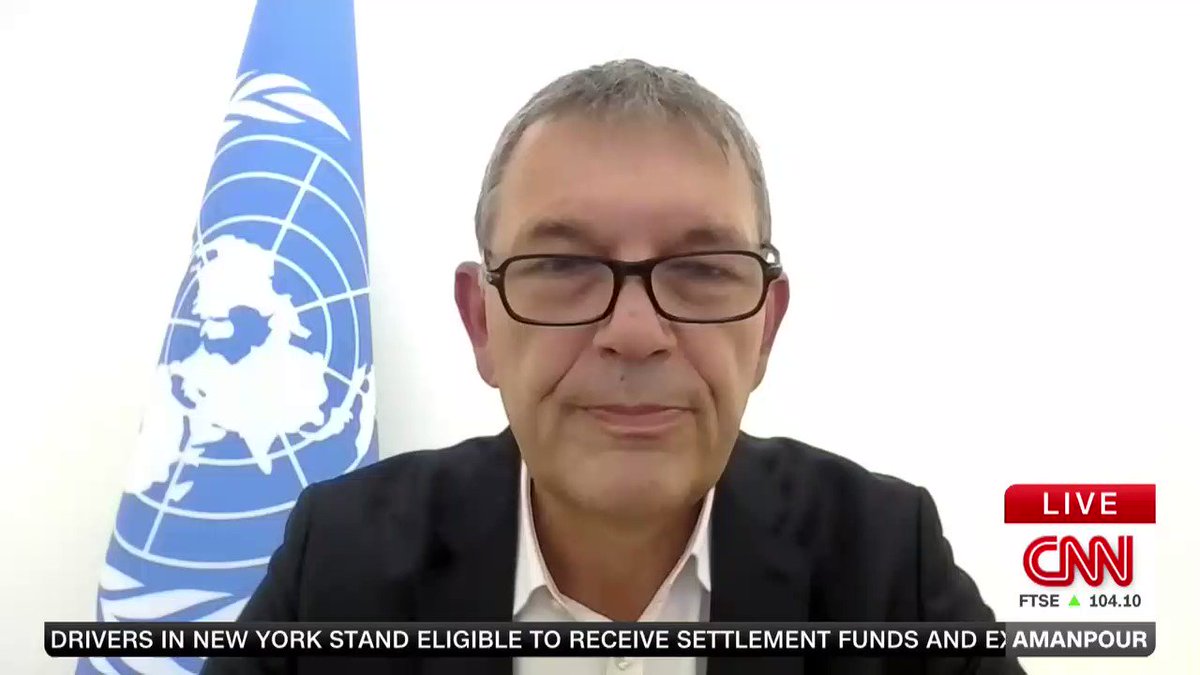
No comments:
Post a Comment